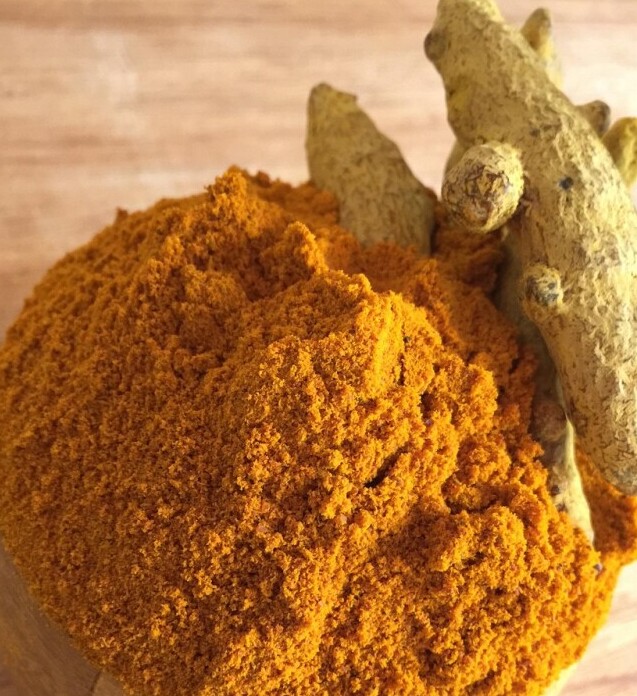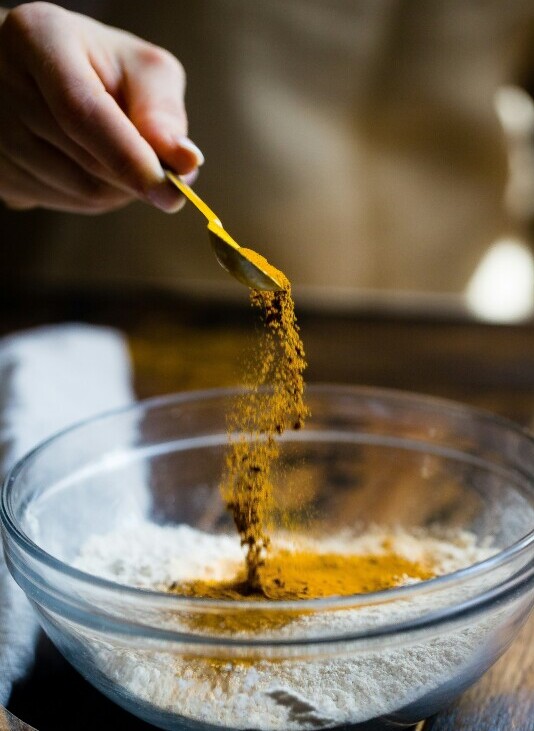Inflammation is your body’s way of defending itself against harm, like that vigilant sentry on high alert. Acute inflammation happens fast, responding to injury or infection. Think of it like when you scrape your knee, it swells; that’s your body rushing its troops to heal.
Chronic inflammation is another beast entirely. It sticks around way too long and becomes a root cause for a host of issues, especially if you’re in your fabulous 40s and beyond. This sneaky form of inflammation paves the way for arthritis, heart disease, and even some cancers. It’s like that one guest at a party who overstays their welcome, creating drama you didn’t sign up for.
Understanding what triggers these inflammatory responses is key. Stress, poor diet, lack of exercise, and environmental toxins can all keep the inflammation pot stirred and bubbling over. Recognizing these triggers not only helps manage existing issues but also steers you toward a healthier, more vibrant life.
To keep inflammation in check, it’s crucial to focus on preventive measures. This means incorporating a balanced diet full of anti-inflammatory foods, like fresh fruits and veggies, and steering clear of processed stuff designed to wage war on your insides. Regular exercise, adequate hydration, and proper sleep also join forces in this battle.
Being aware and proactive isn’t just about reducing symptoms; it’s about understanding your body’s language, making informed decisions, and living your best life, no matter your age. Empower yourself with knowledge, and your body will thank you with fewer aches and improved well-being!
Nature’s Potent Healers: Natural Remedies for Inflammation
When looking for natural ways to tackle inflammation, turmeric often tops the list. Known for its golden hue and earthy taste, turmeric is packed with curcumin, a compound celebrated for its anti-inflammatory effects. It works on a cellular level to help reduce inflammation, making it a favored choice across kitchens worldwide and perfect for those aged 40 and older who are gearing towards preventive health.
Besides turmeric, omega-3 fatty acids also earn their spotlight in the anti-inflammatory arena. Found in fatty fish like salmon, these acids are the unsung heroes, helping to quell inflammatory responses within your body. They not only support joint health but are also beneficial for heart health, something to consider as time passes.
Herbs such as boswellia, which might not be as commonly known, offer promising anti-inflammatory properties too. This herb plays a role in improving symptoms of joint pain, and when integrated into a wellness plan, its impact can be comfortably felt over time without unpleasant side effects associated with synthetic options.
For anyone interested in herbal remedies, pairing different sources of natural anti-inflammatories can amplify their benefits. A combination of these elements in your daily regimen helps maximize the potential of nature’s offerings. Keeping inflammation down through these natural methods can mean fewer medication needs, with the added bonus of enhancing overall lifestyle quality.
Research and anecdotal evidence continue to shine a light on these natural remedies, confirming their role as viable alternatives or complements to over-the-counter anti-inflammatory drugs. Embracing these options can lead to better health outcomes, especially as one grows older, making it a path worth exploring.

Food as Medicine: Nutritional Warriors Against Inflammation
When fighting inflammation, what we eat plays a major role. A prime example is fatty fish, such as salmon, which is rich in omega-3 fatty acids that combat inflammation head-on. Adding oily fish to your meals a couple of times a week can significantly boost your body’s resilience against inflammatory issues.
Leafy greens like spinach and kale are also powerful allies. They’re high in antioxidants, which help neutralize free radicals and reduce inflammation. These greens can easily be slipped into your diet, whether in a salad, smoothie, or sautéed side dish. Their versatility makes them a staple in the fight against inflammation.
Then there’s the spotlight on nuts. Almonds and walnuts are not just good for snacking—they’re loaded with healthy fats and fibers that help curb inflammation. Keeping these handy can provide a healthy snack alternative that supports your body’s anti-inflammatory efforts.
Berries, particularly blueberries, with their high antioxidant levels, have shown promise in reducing inflammation as well. They add a sweet, nutritious punch to your meals, perfect for breakfast toppings or an afternoon snack.
On the flip side, enjoying your coffee in moderation might actually benefit you. Coffee contains antioxidants that can contribute to an anti-inflammatory diet, although it’s essential not to overdo it, as too much caffeine can lead to other health issues.
Avoiding inflammation-promoting foods is equally crucial. Processed meats, sugary beverages, and refined carbohydrates, for instance, should be on the retirement list for your pantry. Eliminating or significantly reducing these can lead to noticeable improvements in joint health, digestion, and energy levels.
Incorporating an anti-inflammatory diet is not about depriving yourself; it’s about abundance and selecting foods that support longevity and a healthier life, particularly as we age. With informed choices, you not only enjoy delicious meals but also actively take charge of your health, helping to ensure a life filled with vitality and less discomfort.
Spice It Right: The Miracle Stir in Your Kitchen
Taking a closer look at your seasoning rack can uncover a treasure trove of anti-inflammatory potential. Ginger, a common kitchen staple known for its zing, does wonders when it comes to reducing inflammation. Its active compound, gingerol, has been shown to help with conditions like osteoarthritis, making it a superb addition to the diet of someone over 40 looking to soothe their joints.
Turmeric doesn’t stand alone as an anti-inflammatory giant. Cinnamon is right alongside, offering sweet relief from inflammation. It’s not just for desserts; a pinch can elevate savory dishes too, adding warmth and health benefits.
Don’t overlook the power of cayenne pepper. This spice is spiced with capsaicin, another compound that significantly reduces inflammation. Its kick can liven up soups and stews while supporting your fight against inflammatory issues.
Herbs like rosemary and thyme shouldn’t be underestimated either. They contain anti-inflammatory properties and bring delightful aroma and flavor to your meals, turning every bite into a step toward better health.
Combining spices can amplify their anti-inflammatory effects. Consider concocting a spice blend as part of your daily routine, sprucing up dishes while supporting your body’s need to ward off inflammation. This approach doesn’t just satisfy your tastebuds but helps fortify your body against unwanted aches and pains.
These spices, while flavorful and functional, are easy to incorporate. Whether you’re adding a dash to a morning smoothie, stirring into your favorite soup, or baking into snacks, they offer a simple, effective way to reduce inflammation naturally. Opt for freshness to reap maximum benefits, transforming meals into your daily dose of wellness. 
Creating an Anti-Inflammatory Lifestyle: Steps to Wellness
Crafting a lifestyle that reduces inflammation goes beyond diet and spices; it’s about making comprehensive changes to improve your overall well-being, especially as we age.
Exercise is the unsung hero in the fight against chronic inflammation. Regular movement helps lower inflammatory markers in the body. Whether it’s a brisk walk, a yoga session, or light weight training a few times a week, making time for physical activity can be transformative. Remember, the aim is consistency, not intensity.
Stress management is another crucial piece of the puzzle. Chronic stress boosts inflammation levels, impacting both mental and physical health. Techniques such as meditation, deep breathing exercises, or even a few moments of quiet reflection each day can work wonders in calming your body’s stress response.
Then there’s sleep—often overlooked yet vital. Quality sleep allows your body to repair and regulate itself, keeping inflammation in check. Establishing a bedtime routine that prioritizes winding down can help improve sleep quality.
As a nurse immersed in health and wellness, I often suggest creating a supportive environment that encourages these healthy habits. Surround yourself with people who inspire and uplift you, and don’t hesitate to seek professional guidance when you feel stuck.
Navigating inflammation isn’t about drastic changes overnight. It’s about making small, intentional choices each day that add up to lasting impact. By incorporating these elements, you create a supportive internal environment, promoting longevity and health, allowing you to enjoy the vibrant and active lifestyle you deserve while aging gracefully.
